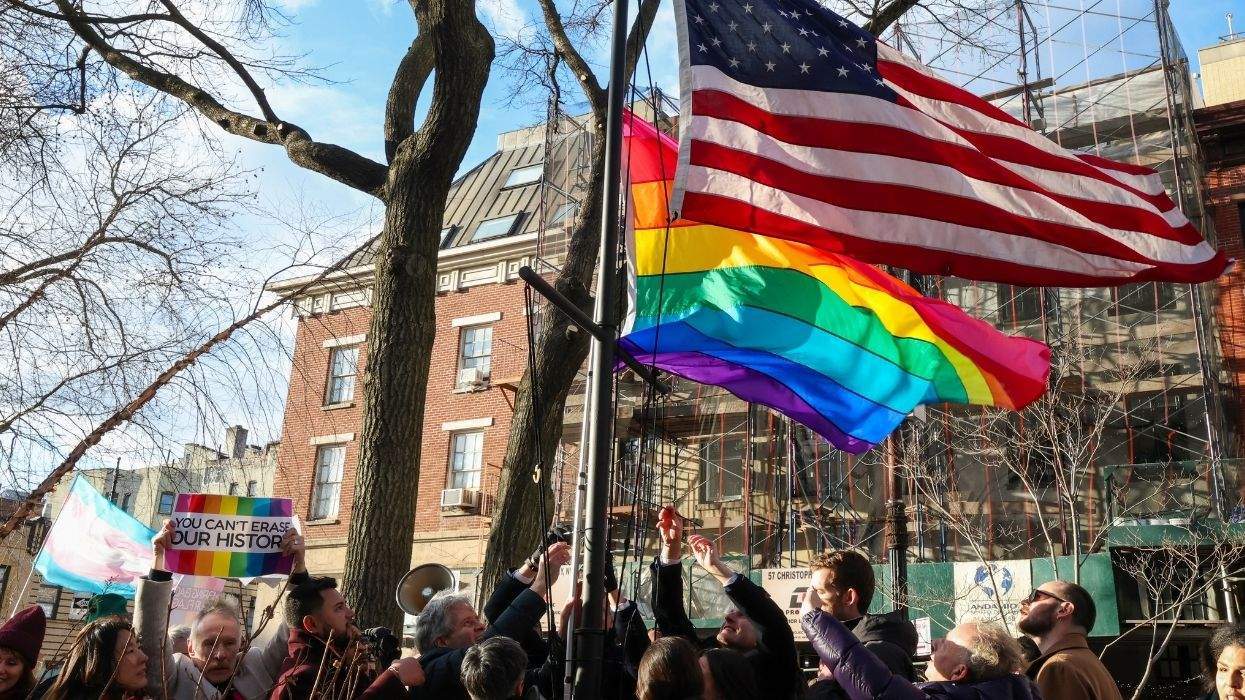The U.S. Supreme Court declined to hear an appeal from a student whose school banned his t-shirt that read “there are only two genders.” The decision affirms lower district and circuit court rulings saying the school’s ban did not violate the student’s First Amendment rights to free speech.
Keep up with the latest in LGBTQ+ news and politics. Sign up for The Advocate's email newsletter.
Justices Clarence Thomas and Samuel Alito wrote separate responses to the decision by the court.
The case, L.M. vs. Middleborough, was brought by student Liam Morrison, who sued officials in the town of Middleborough, Massachusetts, and John T. Nichols Middle School (NMS) when he was twice sent home from school for wearing a shirt that read “there are only two genders.” Morrison was in the 7th grade in 2023 at the time of the incidents. Administrators said the shirt was offensive and hateful, and violated school rules about targeting others.
RELATED: Massachusetts school can ban ‘two genders’ t-shirt
In the first incident, he wasn't punished but was sent home after he refused to hide the text on the shirt. A week and a half later, he wore the same t-shirt with the words “only two” covered in tape. On the tape he wrote “censored.”
Morrison brought the case with the help of his father and stepmother and the Alliance Defending Freedom, a far-right Christian legal advocacy group.
U.S. District Judge Indira Talwani initially ruled against Morrison. The First U.S. Circuit Court of Appeals upheld the decision, finding “that a message displayed throughout the school day denying the existence of the gender identities of transgender and gender nonconforming students would have a serious negative impact on those students' ability to concentrate on their classroom work.”
“In following the lead of other courts that have grappled with similar cases, we emphasize that in many realms of public life one must bear the risk of being subjected to messages that are demeaning of race, sex, religion, or sexual orientation, even when those messages are highly disparaging of those characteristics,” Chief Judge David J. Barron wrote for a three-judge panel of the U.S. Court of Appeals for the First Circuit.
Administrators knew that Nichols Middle School had some students who were transgender or gender-nonconforming, the appellate ruling noted, and that these students often felt unwelcome or bullied at school. They were likely to react badly to Morrison’s shirt, and administrators were right to conclude that the shirt would disrupt the learning environment, Judge Barron explained.
RELATED: U.S. Supreme Court to decide on gender-affirming care bans
In his suit, Morrison claimed students at his school were taught that gender existed on a spectrum and was not binary. Justice Thomas wrote in his dissent that Morrison’s “‘understanding of basic biology’ has led him to believe that “there are only two sexes, male and female, and that a person’s gender . . . is inextricably tied to sex.”
Thomas's dissent ignores the existence of intersex people as well as the complexity of gender. Thomas's dissent may also indicate the direction of future opinions by Thomas, as several LGBTQ+ rights-related cases are currently at the high court.
RELATED: Right-wing court justices side with anti-LGBTQ+ parents
In his dissent, Alito stressed the lower courts needed more guidance when deciding such cases.
The Supreme Court's decision to decline the case comes as it weighs another LGBTQ-focused case involving parents in Maryland who look to have their kids opt out of curricula involving LGBTQ+themed books in class.
















Charlie Kirk DID say stoning gay people was the 'perfect law' — and these other heinous quotes
These are some of his worst comments about LGBTQ+ people made by Charlie Kirk.